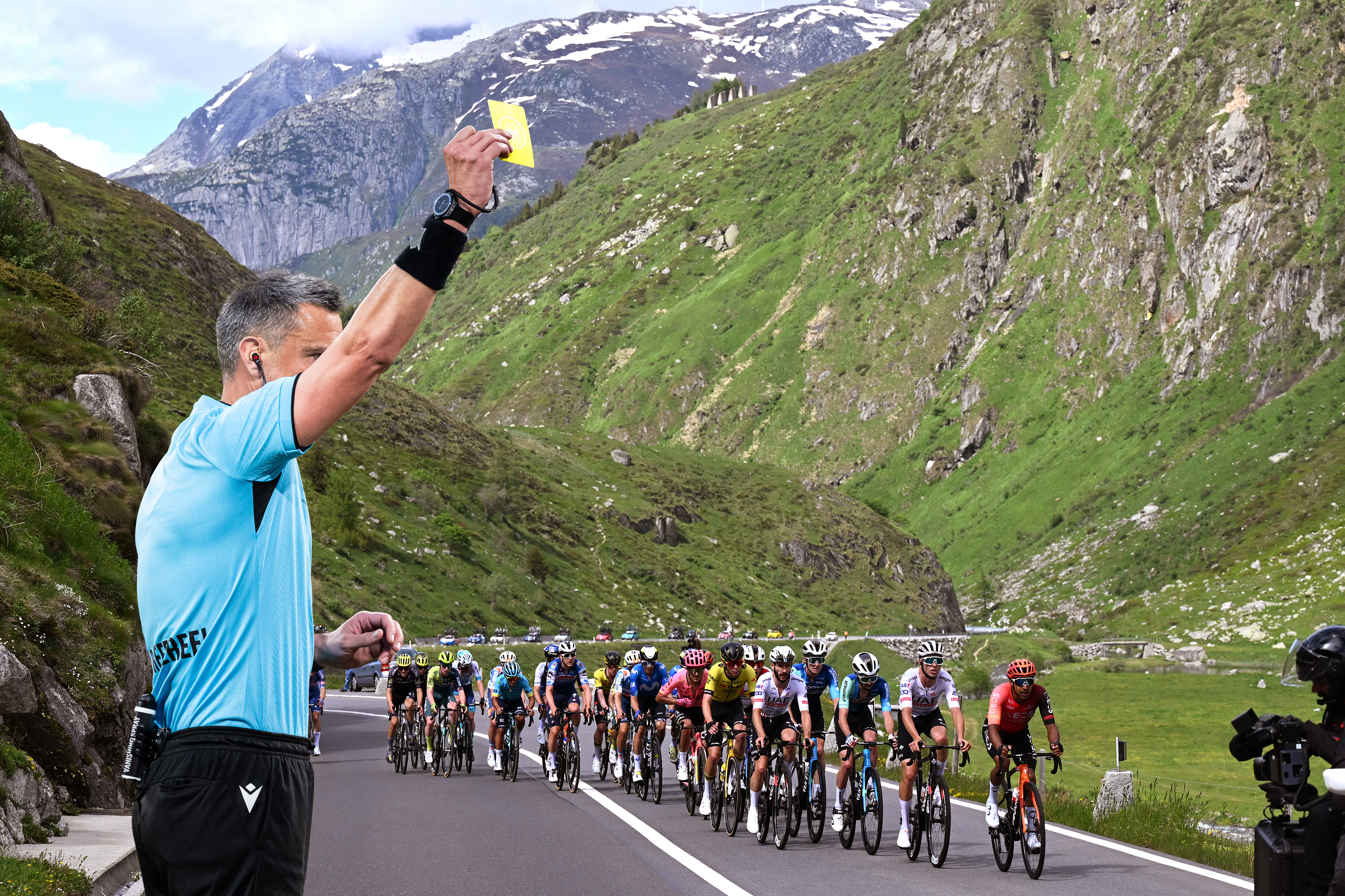Yellow cards to be trialled in pro cycling amid raft of UCI rule changes
The way time gaps are calculated is also set to be altered


A new 'yellow card' system will be trialled in professional cycling, as part of rule changes designed to promote safety in road races.
Cycling's governing body, the UCI, announced the rules on Wednesday evening. Alongside the yellow card system, there will be changes to the 3km rule - whereby riders affected by crashes or mechanicals in the closing kilometres are given the same finish time as those around them at the time of the incident - how time gaps are calculated on sprint stages, and potential restrictions on using race radios.
The changes are to be trialled throughout the rest of this year, with the 3km rule and new time gap regulations to be trialled at "certain stages" of the Tour de France, which begins in just over a fortnight.
The yellow card rules will be tested between August and the end of the year, and then introduced from 2025 with sanctions. The updates come as a result of the work of the SafeR project, the UCI's independent safe cycling project, and were decided by the management committee of the UCI earlier this week.
The yellow card system will see any member of the race convoy, from riders to motorbike riders, sanctioned for "any offence likely to pose a risk to the safety of the competition". The cards will not physically exist, but represent a warning in the day's race communiqué.
Violations of the rules will be tracked by the UCI, with an accumulation of the yellow cards meaning up to 30 days of suspension. Once the suspension has been served, a record begins clean again.
Two yellow cards in a single race will mean disqualification and a seven-day suspension; three cards in 30 days mean 14 days of suspension; and six within a year mean 30 days out of racing.
The latest race content, interviews, features, reviews and expert buying guides, direct to your inbox!
There are 21 race incidents that can be penalised, as according to article 2.12.007 of the UCI Regulations.
These include regular infractions like using a vehicle's slipstream, holding onto a car, indecent behaviour, too long a "sticky bottle", getting rid of rubbish outside the waste zone, and taking off a helmet mid-race.
Adam Hansen, the president of the riders' union, the CPA, said: "A large survey conducted last year indicated the need for a yellow card system in cycling, which will be tested in the coming months before being implemented next year.
"These initial measures recommended by SafeR to the UCI demonstrate that riders’ requests are being heard and acted upon."
The 3km rule simply means that in the last 3km of a road race stage (apart from summit finishes), any crash or mechanical incident that holds up a rider will not result in time lost against those he was with at the time of the incident.
Now, the safety net can be extended up to five kilometres. Also, the way riders will be awarded times at the end of sprint stages will be subtly changed. Both will be trialled at the Tour.
At present, the same time is allocated to riders as long as no more than a second separates gaps in the bunch. This will be increased to three seconds on some days, a move designed to "relieve the pressure on riders not directly involved in the sprint and to allow them to leave a certain margin with the front of the race".
This will give GC riders a lot more space to play with at the end of sprints.
A final update was that race radios could be restricted in the future. The UCI said that it would "test the effects of a restriction on wearing and using earpieces in races this year", which might see just two riders per team allowed to have earpieces in.

Adam is Cycling Weekly’s news editor – his greatest love is road racing but as long as he is cycling, he's happy. Before joining CW in 2021 he spent two years writing for Procycling. He's usually out and about on the roads of Bristol and its surrounds.
Before cycling took over his professional life, he covered ecclesiastical matters at the world’s largest Anglican newspaper and politics at Business Insider. Don't ask how that is related to riding bikes.